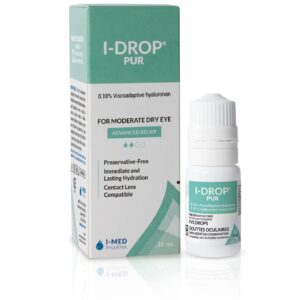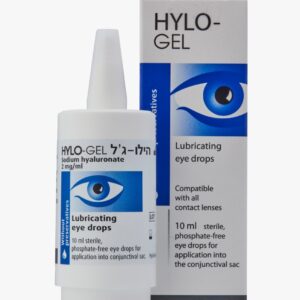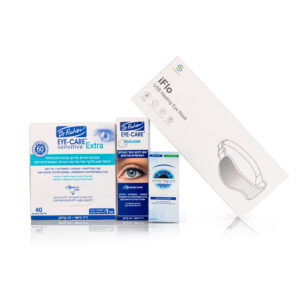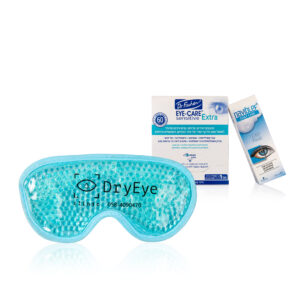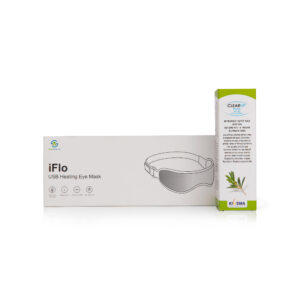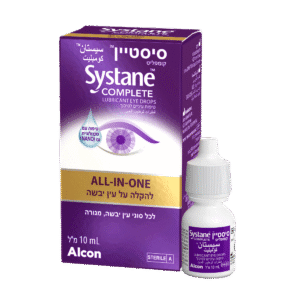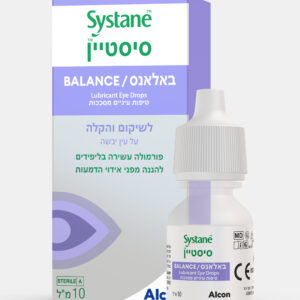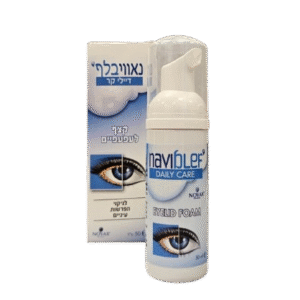
טיפות דמעות – מה זה ולמה משתמשים בהן?
טיפות דמעות הן תמיסות רפואיות או קוסמטיות שמטרתן להקל על
Due to long queues in public medicine, patients seek treatment by a private ophthalmologist. There is a lack of understanding of the difference between public medicine (such as a health insurance fund), versus supplementary insurance services versus a private clinic. This article comes to sort things out for you.
Eye health is a critical aspect of overall well-being, but is often overlooked until significant problems arise. In Israel, a country known for its advanced medical services, ophthalmology occupies an essential place in the health field, offering advanced treatments and comprehensive treatment for a variety of eye diseases. From routine eye exams to complex surgical procedures, the role of ophthalmologists in maintaining and restoring vision cannot be overstated. This article delves into the complex world of private eye doctors in Israel and examines the various routes through which people can access special eye treatments. Whether through one of the four public health insurances, supplementary medical insurances, or by choosing completely private doctors that are not related to any insurance, Israelis have several options. Each choice comes with its own set of considerations, including cost, accessibility and the variety of services offered, making the decision process just as important as the treatment itself.

The health care system in Israel is known for its efficiency and the high quality of care provided to its residents. At its core, the system is based on the State Health Insurance Law from 1995, which guarantees health services to all citizens of Israel. According to this system, residents are required to register with one of four public health insurance organizations, known as the health funds: Klalit, Maccabi, Moechedat and National. These health funds are funded through taxation and offer a basket of medical services to their members, including access to general practitioners, specialists, hospitalizations and certain medications.
The role of public health insurance in Israel
These health funds not only form the basis of the health care system in Israel, but also ensure that comprehensive treatment is accessible to everyone, regardless of their financial situation. However, while the public system offers extensive coverage, there are times when people seek more specialized or immediate care than is available through their health insurance. This is where supplementary medical insurances and private eye doctors come into play, offering additional options for those looking for a higher level of personalized care or access to specific treatments that are not fully covered by public insurance.
In Israel, access to ophthalmology services through public health insurance is a simple process, thanks to the comprehensive coverage provided by the four main health organizations (health funds). These health funds offer a variety of ophthalmology services covering basic eye care, examinations, treatments for common eye diseases, and in some cases, more complex procedures. The availability of services and the extent of coverage can vary between health funds, but all strive to provide their members with quality eye care.
Access to ophthalmology services through public health insurance
To access ophthalmology services, members of any health fund usually need a referral from their primary physician. This referral system ensures that patients receive the appropriate treatment for their specific eye health needs. After referral, patients can choose from a list of ophthalmologists affiliated with their health fund. These professionals work within the public system, in clinics or hospitals, and offer their expertise to patients as part of the HMO network.
Comparison between ophthalmology services and public health insurance
While all four HMOs are committed to providing excellent eye care, there are differences in the way services are provided, the speed of access and the availability of certain treatments or technologies. For example, some HMOs have shorter waiting times for specific procedures or access to a wider range of specialists. Patients may also offer a different service in the level of personalized care and follow-up.
Limitations and waiting times for ophthalmology services
One of the challenges within the public system is the potential for longer wait times for non-urgent ophthalmology services, such as routine examinations or specific surgeries that are in high demand. Additionally, while coverage for basic eye treatments is extensive, advanced treatments or specialized technologies may not be fully covered, leading some patients to seek alternative solutions.

To address the limitations of public health insurance and increase their health coverage, many Israelis turn to supplemental medical insurance. These supplementary plans are offered by the same four health funds – Klalit, Maccabi, United and National – and provide additional benefits and services in ophthalmology that go beyond what is covered by the standard health basket.
Review of supplementary medical insurances
Benefits of supplementary medical insurance for ophthalmology services
The supplementary insurances significantly reduce the out-of-pocket costs for treatments that are partially or not covered at all by public insurance. They also offer the flexibility to seek treatment from private practitioners and access to a wider network of specialists, which can reduce waiting times for appointments and surgeries. Furthermore, these plans often cover advanced diagnostic tests and innovative treatments, ensuring patients have access to the best possible care for their eye health.
Comparison of ophthalmology services within the framework of supplementary insurances
The level of coverage and the specific benefits offered can vary greatly between supplemental plans. Some plans may offer better coverage for surgical procedures, while others may delve into preventative care for example. The choice of the program should be guided by the individual's specific health needs, the individual's lifestyle and financial considerations, to ensure that they receive the most comprehensive treatment for their condition.
Choosing a private ophthalmologist in Israel is a choice that many people make in order to access special eye care services outside of the framework of public health insurance. This option is particularly attractive to those seeking immediate attention, a higher level of personalized care, or access to specific treatments and technologies not widely available in the public system.
Advantages of choosing a private ophthalmologist
The main advantage of consulting with a private ophthalmologist includes shortening waiting times for both consultations and procedures. This immediacy can be essential for people experiencing acute eye conditions or those with deteriorating eye health. Private practitioners often offer more flexible scheduling and a wider range of treatment options, including the latest advances in eye care. Moreover, the one-on-one attention and customized treatment plans provided in a private setting can improve the overall quality of care and patient satisfaction.
How to find a reputable private eye doctor
Finding a reputable private ophthalmologist in Israel involves researching the therapists' skills, experience, and patient reviews. Professional associations and medical boards can provide lists of qualified ophthalmologists, while recommendations from primary care physicians, family members, and friends can offer valuable insight. In addition, many private eye doctors have online profiles detailing their specialties, treatment techniques and patient testimonials.
Understanding costs: fees and payment options
The cost of contacting a private ophthalmologist and treatment can vary greatly depending on the type of service, the complexity of the procedure and the reputation of the therapist. It is important for patients to find out about fee structures and prepayment options. Some private ophthalmologists may offer payment plans or accept insurance from supplemental medical insurance plans, which can help reduce the financial burden of treatments.
Making informed decisions about whether to seek eye care from public health services or through a private ophthalmologist involves weighing several factors, including the urgency of the treatment, financial considerations and personal preferences for the type of treatment experience.
Decision factors: when to choose public versus private ophthalmologists
The decision to choose public or private eye care often depends on the specific needs and circumstances of the individual. For eye treatments and routine treatments covered under the public health insurance or supplementary plans, the public system may offer a cost-effective solution. However, for urgent care, special treatments or a preference for a specific ophthalmologist, the private sector may be more suitable.
Patient rights and advocacy in the field of eye health
Understanding patient rights and advocacy is essential for anyone who navigates the Israeli health system. Patients have the right to receive timely treatment, access their medical records and request a second opinion. Advocacy organizations and patient support groups can offer guidance and help navigating the system, ensuring people make informed decisions about their eye health care.
A balance between the strengths and limitations of Israel's public and private ophthalmology services allows people to tailor treatment to best meet their needs, while ensuring access to the highest quality of care and optimal health outcomes.
Israel's reputation as a center for medical innovation extends to the field of ophthalmology, where advanced research and technology are changing the way eye care is performed. From advanced surgical techniques to groundbreaking treatments for eye diseases, Israeli ophthalmologists and research institutions are at the forefront of innovation in the field of eye treatments.
Leading technologies and treatments in ophthalmology
Innovative technologies such as laser eye surgery, advanced imaging techniques and minimally invasive procedures have become more accessible, offering patients effective treatment options with shorter recovery times. Israel is also a pioneer in the development of genetic therapies and biotechnological treatments for conditions that were previously considered untreatable, such as certain forms of hereditary retinal diseases.
A spotlight on leading private ophthalmologists and their contribution
Many of the leading ophthalmologists in Israel are not only engaged in treating patients but also in research and development, contributing to global progress in the field. These professionals often collaborate with biotechnology companies and academic institutions to experiment with new treatments and technologies, ensuring that Israeli patients have access to the latest innovations in eye care.
Research and development in the field of eye health
The commitment to research and development in the ophthalmology sector in Israel is supported by a strong ecosystem that includes government funding, private investments and a collaborative medical community. This environment fosters innovation and enables the rapid assimilation of new treatments and technologies in clinical settings, while improving patient care and outcomes.
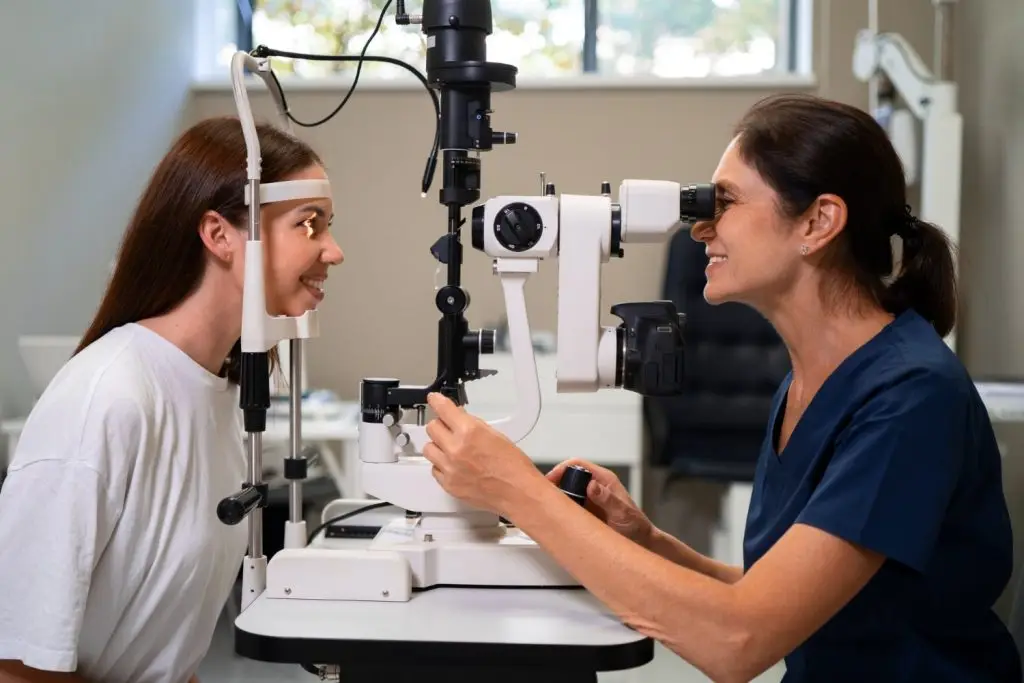
Navigating the financial aspects of eye treatments in Israel requires an understanding of the various costs involved in the treatments, the insurance coverage and the potential for financial assistance. Whether they access services through public health insurance, supplementary insurance or opting for private care, patients must consider the financial implications of their choices.
Cost-effectiveness analysis of private versus public ophthalmology services
When considering private ophthalmology services, patients should evaluate the cost-effectiveness of paying for faster access or specialized treatments versus using services covered in the public system. This analysis should take into account the quality of care, the urgency of care and long-term health outcomes.
Insurance coverage: navigating policies and claims
Understanding the details of what is and is not covered by public health insurance and supplementary medical insurance is essential. Patients should familiarize themselves with the claims process, especially for treatments that may be partially covered or require prior authorization. Contacting insurance representatives and seeking assistance from patient support groups can provide clarity and support in navigating these processes.
Financial aid and support for eye treatments
For those facing financial difficulty in accessing necessary eye care, there are various sources of assistance and support. Such as government programs, subsidies from health organizations and assistance from non-profit organizations dedicated to eye care. Patients should explore these options thoroughly to ensure they receive the care they need without undue financial burden.
In conclusion, the landscape of ophthalmology in Israel is characterized by a combination of innovation and practical considerations. Patients have access to some of the most advanced eye care in the world, but must navigate the financial and systemic aspects of the healthcare system to make the most informed decisions about their eye health.
Patients' experiences and satisfaction levels offer important insights into the efficiency and quality of ophthalmology services in Israel, spanning both the public and private sectors. These narratives not only reflect the care received but also emphasize the system's responsiveness to the patient's needs, accessibility, and the patient's overall journey from diagnosis to treatment and follow-up.
Patient testimonials: public versus private ophthalmology services
Collection and analysis of patient testimonials reveals a spectrum of experiences with ophthalmology services in Israel. In the public sector, patients often express appreciation for the comprehensive coverage and the quality of care provided, even though they are sometimes faced with longer waiting times for certain procedures. On the other hand, those who choose private treatment often cite the advantages of shorter waiting times, more personal treatment and access to advanced treatments as key factors in their satisfaction. These stories emphasize the importance of choosing health services and the impact of different pathways on patient outcomes and satisfaction.
Survey results on patient satisfaction and service quality
Surveys and studies focusing on patient satisfaction with ophthalmology services in Israel provide quantitative data that support these anecdotal reports. Factors such as the ease of access to treatment, the quality of the interaction between patient and doctor, the efficiency of service delivery and the results of treatments play significant roles in shaping patient satisfaction. These findings help identify areas of excellence in the system as well as opportunities for improvement, leading to continuous improvements in patient care.
The landscape of eye treatments in Israel is rich and multi-faceted, and offers a variety of options, from public and private treatment to innovative treatments and international progress. Patients in Israel benefit from a healthcare system that not only emphasizes universal coverage but also fosters innovation and excellence in specialized fields such as ophthalmology.
The choice between public and private eye care is influenced by a variety of factors, including the urgency and complexity of medical needs, financial considerations and personal preferences for treatment. While the public system provides a solid foundation of eye care services for everyone, supplementary insurances and private treatment options allow access to expedited and special treatments for those who seek them.
In navigating the Israeli healthcare system, patients are encouraged to make informed decisions, leveraging the multitude of options available to them. Success stories across the spectrum of care emphasize the system's ability to meet diverse needs, and emphasize the importance of continuous investment in health infrastructure, patient education and innovation.
As the ophthalmology sector in Israel continues to develop, it remains at the forefront of medical excellence, driven by a commitment to research, patient-centered care and the integration of advanced technologies. This dynamic environment not only improves the quality of eye care available to patients in Israel but also contributes to global progress in the field of ophthalmology.
In conclusion, the ophthalmology sector in Israel demonstrates a balanced approach to health services, combining a public approach with private innovation. This model ensures that patients have access to quality eye care, tailored to their unique needs and circumstances, and fosters a healthier future for all.

טיפות דמעות הן תמיסות רפואיות או קוסמטיות שמטרתן להקל על

ויטמין C הוא אחד הוויטמינים החיוניים ביותר לבריאות העיניים, הודות

מרכז מומחים לאבחון וטיפול מתקדם בתסמונת העין היבשה ומחלות פני שטח העין
